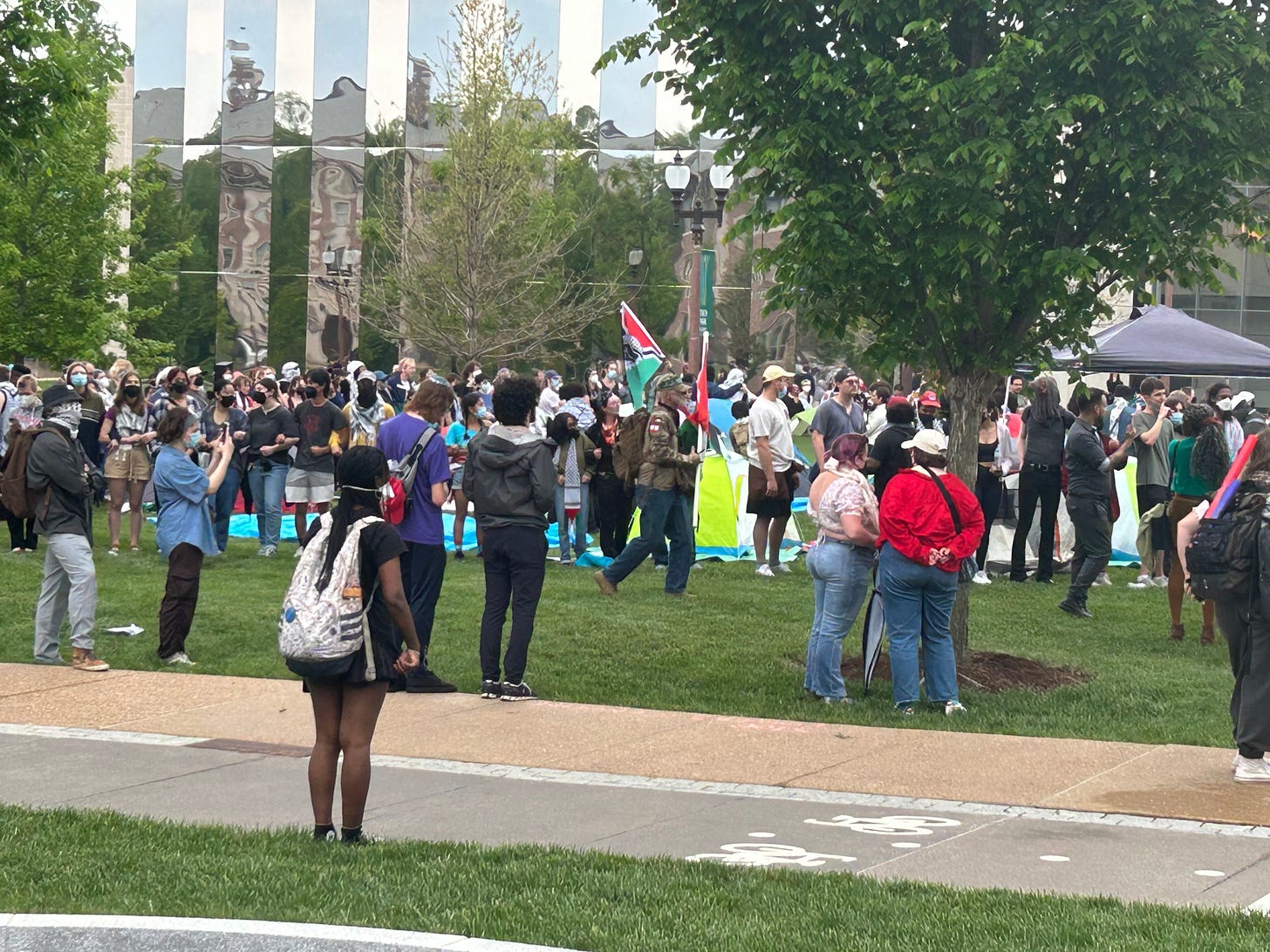Assembly and Campus Protests
Exploring the legal and constitutional dimensions with scholars of assembly
Yesterday, I had the privilege of connecting virtually with three friends and colleagues: Tabatha Abu El-Haj (Drexel), Ashutosh Bhagwat (UC Davis), and Tim Zick (William and Mary). As you’ll see in the brief bios at the end of this post, the four of us have spent a great deal of time researching, writing, and teaching about assembly, protest, and related issues.
One reason to convene this group was simply to reconnect with informed friends to talk through some of the complicated legal issues related to campus protests. But I have also been increasingly concerned with some of the hot takes and careless generalizations I have come across in recent weeks. I thought it would be helpful to have the kind of nuanced conversation that is not possible on social media or in a group-authored petition.
Here are a few of the key points from our discussion that stood out to me:
There is an important threshold distinction between public and private college and university campuses. The First Amendment applies to the former but not the latter.
Public colleges and universities subject to the First Amendment cannot engage in viewpoint discrimination (prohibiting or restricting expression of some viewpoints but not others). Private colleges and universities that say that adhere to First Amendment norms should not engage in viewpoint discrimination.
Hate speech is protected expression under the First Amendment.
Both public and private colleges and universities have certain obligations under Title VI to prevent discrimination on the basis of race, religion, and other protected characteristics. A single protest—even one that is filled with expression that might qualify as hate speech—is unlikely to trigger a Title VI violation.
Colleges and universities can and should restrict harassing speech and expression directly targeting individuals.
Colleges and universities are complex physical environments and protests have different implications for different spaces. For example, a dorm commons is different than an open field.
We touched on many other issues in our discussion, and I learned a great deal from my colleagues. I hope that those of you who have been reading about or otherwise engaged in these protests will find also find our discussion helpful.
You can watch the full video here:
Alternatively, you can listen to our discussion here:
About the Speakers
John Inazu is the Sally D. Danforth Distinguished Professor of Law and Religion at Washington University in St. Louis. He is the author of four books, including Liberty’s Refuge: The Forgotten Freedom of Assembly (Yale University Press, 2012) and, most recently, Learning to Disagree: The Surprising Path to Navigating Differences with Empathy and Respect (Zondervan, 2024).
Ash Bhagwat is a Distinguished Professor of Law and the Boochever and Bird Endowed Chair for the Study and Teaching of Freedom and Equality at the University of California, Davis School of Law, where he teaches Administrative Law, Constitutional Law, and Economic Regulation. He clerked for Judge Richard Posner of the Seventh Circuit, and Justice Anthony Kennedy of the United States Supreme Court. Professor Bhagwat is the author of The Myth of Rights, published by the Oxford University Press, and Our Democratic First Amendment, published by the Cambridge University Press.
Tabatha Abu El-Haj is a Professor of Law at Drexel University’s Kline School of Law and a First Amendment scholar whose work focuses on the rights of assembly and association. Her work on assembly includes “The Neglected Right of Assembly,” which appeared in the UCLA Law Review in 2009. She is currently co-editing a forthcoming Oxford Handbook of Peaceful Assembly. Professor Abu El-Haj received her JD/PhD from New York University and clerked for the Honorable Harry T. Edwards of the U.S. Court of Appeals for the D.C. Circuit. She is a regular contributor to the Election Law Blog.
Tim Zick is the John Marshall Professor of Government & Citizenship at William & Mary Law School. Professor Zick is the author of five university press books on the First Amendment, including The First Amendment in the Trump Era (Oxford University Press, 2019) and Managed Dissent: The Law of Public Protest (Cambridge University Press, 2023). He testified before Congress regarding the Occupy Wall Street protest movement.
Astute readers of Some Assembly Required will know that this week’s post arrived a little early. I won’t post anything new on Friday but hope to be back next week!



